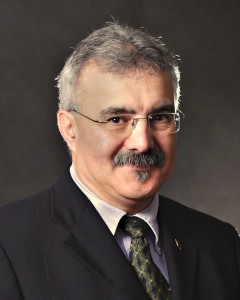Gilbert Laws, Andrew Fuller: Pastor, Theologian, Ropeholder (London: The Carey Press, 1942), 135 pages.
 Book reviews are usually reserved for recent items, not for publications of the more distant past. Yet, from time to time, it is helpful to recall the contribution made by works from an earlier time. The book being reviewed here is noteworthy in view of the fact that while there had been a handful of biographies of Andrew Fuller in the nineteenth century—mostly written by friends, colleagues and family members—there was only one of any substance in the twentieth century, namely, that by Rev. Gilbert Laws (1876–1962), long-time minister of the historic Baptist congregation in Norwich, St. Mary’s Baptist Church (now Norwich Central Baptist Church). Laws was a well-known preacher in the Baptist Union during the 1930s and 1940s, and also served as the President of this body.
Book reviews are usually reserved for recent items, not for publications of the more distant past. Yet, from time to time, it is helpful to recall the contribution made by works from an earlier time. The book being reviewed here is noteworthy in view of the fact that while there had been a handful of biographies of Andrew Fuller in the nineteenth century—mostly written by friends, colleagues and family members—there was only one of any substance in the twentieth century, namely, that by Rev. Gilbert Laws (1876–1962), long-time minister of the historic Baptist congregation in Norwich, St. Mary’s Baptist Church (now Norwich Central Baptist Church). Laws was a well-known preacher in the Baptist Union during the 1930s and 1940s, and also served as the President of this body.
Laws’ biography of Fuller, not easily found these days, was printed on sub-standard wartime paper, and most copies that I have seen have been the worse for wear. The subtitle gives the major categories in which Laws treats his subject: Fuller as a pastor, a theologian, and a “ropeholder,” that is, missions advocate and loyal friend and supporter of William Carey. An earlier article on Fuller by Laws that appeared in The Baptist Quarterly had examined Fuller’s life briefly under these very headings (“Andrew Fuller, 1754–1815,” The Baptist Quarterly 2.2 [April 1924]: 76–84). Now, in this book-length endeavor, Laws expanded the scope of his treatment.
The strength of Laws’ study lies in his fine discussion of Fuller as a pastor and in his service to the Baptist Missionary Society. Laws does not attempt to hide his admiration of Fuller—“we may affirm that to Fuller the Christian cause in general and the Baptist denomination in particular owes so much that, excepting only Carey, it is hard to name his fellow” (p.132). Yet, he deals honestly with his character, which at times could be stern and gruff. Robert Hall, Jr said of Fuller after his death, he was “less eminent for the gentler graces than for stern integrity” (p.123), while Fuller’s own wife, Ann Coles Fuller, admitted that “there was a degree of bluntness in his manner” (p.124). In detailing Fuller’s role as a pastor and “ropeholder,” Laws has made good use of the numerous anecdotes and stories about Fuller found in the various nineteenth-century biographies as well as those that Fuller himself recorded in his letters and diaries.
The one area where the work is not strong is his treatment of Fuller as a theologian. For instance, referring to Fuller’s The Gospel Worthy of All Acceptation, his first major publication, Laws comments, “it is impossible to summarize its argument” (p.35). Laws does attempt a brief overview, which is as it should be, for this work began Fuller’s career as an apologist. Laws’ failing here is one, however, general to the twentieth century that largely forgot Fuller’s importance in this area and remembered simply his role as a missionary statesman. Nineteenth-century biographers and theologians, on the other hand, did not share this weakness as Laws himself knew (see his reference to A.H. Strong’s significant use of Fuller’s corpus on p.126).
All in all, though, this is a very good study of Fuller, especially revelatory of the humanity of the Baptist theologian. When Andrew Gunton Fuller published his 1882 biography of his father in the series “Men Worth Remembering,” C.H. Spurgeon personally thanked the younger Fuller for having shown interested readers something of the personal side of Fuller. Likewise, looking at Laws’ biography standing alone in the long twentieth century, he is to be thanked for having kept alive the memory of a man truly worth remembering.
Michael A.G. Haykin Professor of Church History The Southern Baptist Theological Seminary
To download the review as PDF, click here. To see other book reviews, visit here.


 Michael A.G. Haykin is the director of the Andrew Fuller Center for Baptist Studies. He also serves as Professor of Church History and Biblical Spirituality at Southern Baptist Theological Seminary. Dr. Haykin and his wife Alison have two grown children, Victoria and Nigel.
Michael A.G. Haykin is the director of the Andrew Fuller Center for Baptist Studies. He also serves as Professor of Church History and Biblical Spirituality at Southern Baptist Theological Seminary. Dr. Haykin and his wife Alison have two grown children, Victoria and Nigel.
 Evan D. Burns (Ph.D. Candidate, The Southern Baptist Theological Seminary) is on faculty at Asia Biblical Theological Seminary, and he lives in Southeast Asia with his wife and twin sons. They are missionaries with Training Leaders International.
Evan D. Burns (Ph.D. Candidate, The Southern Baptist Theological Seminary) is on faculty at Asia Biblical Theological Seminary, and he lives in Southeast Asia with his wife and twin sons. They are missionaries with Training Leaders International. Steve Weaver serves as a research assistant to the director of the Andrew Fuller Center for Baptist Studies and a fellow of the Center. He also serves as senior pastor of Farmdale Baptist Church in Frankfort, KY. Steve and his wife Gretta have six children between the ages of 4 and 15. You can read more from Steve at his personal website:
Steve Weaver serves as a research assistant to the director of the Andrew Fuller Center for Baptist Studies and a fellow of the Center. He also serves as senior pastor of Farmdale Baptist Church in Frankfort, KY. Steve and his wife Gretta have six children between the ages of 4 and 15. You can read more from Steve at his personal website: 
 On February 6, 2015, The Andrew Fuller Center for Baptist Studies hosted a mini-conference to consider the legacy of Andrew Fuller. 2015 marks the bicentennial of Fuller's death so it was appropriate The Andrew Fuller Center devote some time to assessing his legacy. As an added bonus, the conference date of February 6th was the 261st birthday of Fuller. The conference was hosted on the third floor of the Legacy Hotel on the campus of The Southern Baptist Theological Seminary in Louisville, Kentucky. We are pleased to make available the audio from the conference free of charge below.
On February 6, 2015, The Andrew Fuller Center for Baptist Studies hosted a mini-conference to consider the legacy of Andrew Fuller. 2015 marks the bicentennial of Fuller's death so it was appropriate The Andrew Fuller Center devote some time to assessing his legacy. As an added bonus, the conference date of February 6th was the 261st birthday of Fuller. The conference was hosted on the third floor of the Legacy Hotel on the campus of The Southern Baptist Theological Seminary in Louisville, Kentucky. We are pleased to make available the audio from the conference free of charge below. Michael A.G. Haykin is the director of the Andrew Fuller Center for Baptist Studies. He also serves as Professor of Church History and Biblical Spirituality at Southern Baptist Theological Seminary. Dr. Haykin and his wife Alison have two grown children, Victoria and Nigel.
Michael A.G. Haykin is the director of the Andrew Fuller Center for Baptist Studies. He also serves as Professor of Church History and Biblical Spirituality at Southern Baptist Theological Seminary. Dr. Haykin and his wife Alison have two grown children, Victoria and Nigel.






 Nathan A. Finn is associate professor of historical theology and Baptist Studies at Southeastern Baptist Theological Seminary. He is also an elder at First Baptist Church of Durham, NC and a fellow of the Andrew Fuller Center for Baptist Studies.
Nathan A. Finn is associate professor of historical theology and Baptist Studies at Southeastern Baptist Theological Seminary. He is also an elder at First Baptist Church of Durham, NC and a fellow of the Andrew Fuller Center for Baptist Studies.